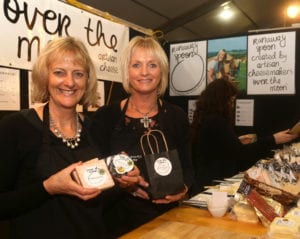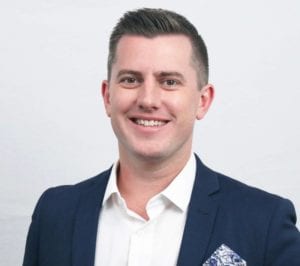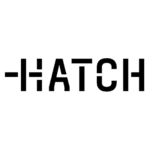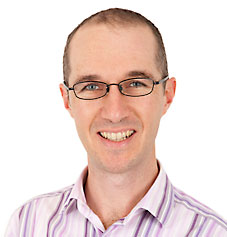
Troy Kingi – The Ghost of Freddie Cesar
The Ghost of Freddie Cesar is Troy Kingi’s fourth installment in his 1O1O1O Series (10 albums in 10 years in 10 genres). Brought to life by Troy Kingi & the Clutch, this record is Troy’s most personal work to date; one that invites the listener to share his journey as he combs through recollections of his father who disappeared while driving from Rotorua to Auckland at Christmas time in 2005. Despite search efforts and sporadic reports of sightings, there has been no reliable trace of Troy’s biological father.
The Ghost of Freddie Cesar – the new album by Troy Kingi and The Clutch: https://troykingi.bandcamp.com/album/the-ghost-of-freddie-cesar
Kiwi Music Podcast is presented by 13th Floor and Podcasts NZ.

No Such Thing as Too Much Cheese
Sue Arthur thought Over the Moon Dairy would be a great retirement project of sorts. What she ended up starting was not one but two amazing businesses with cheese at the center.
Sue has always loved cheese. Living in Waikato, she has been surrounded with the perfect dairying conditions for more than 20 years. On her travels around the world she saw that despite New Zealand having such a big dairy industry, our supermarket shelves were lined with just the basic edam and cheddar cheese – she wanted to fix that!
As she got started learning how to make her own cheese, she realized that there was no cheese school in Aotearoa where one could go to learn the practical and theoretical elements of making cheese at home. By early 2008, Sue had not only setup Over the Moon but also its affiliate the New Zealand Cheese School. A few months in, Over the Moon then made its first cheeses and won a gold and two silver medals at the Cuisine New Zealand Champion of Cheese Awards.
Over the years, Over the Moon has embraced its passion for innovation and created some really unique cheeses like the Black Truffle Brie, The Black Sheep and Galactic Gold. They are one of the few dairies in Australasia that makes cheese with four different types of milk.
On our episode we talk about:
- Evolution of the production and availability of specialty cheeses in New Zealand
- The magic of cheese making
- The journey of starting a cheese factory and a cheese school all at once
- Importance of mentor and contractors to move past the business humps
- How innovation is at the heart of Over the Moon
Listen to the Podcast Here:
Buy some cheese and learn more about Over The Moon.
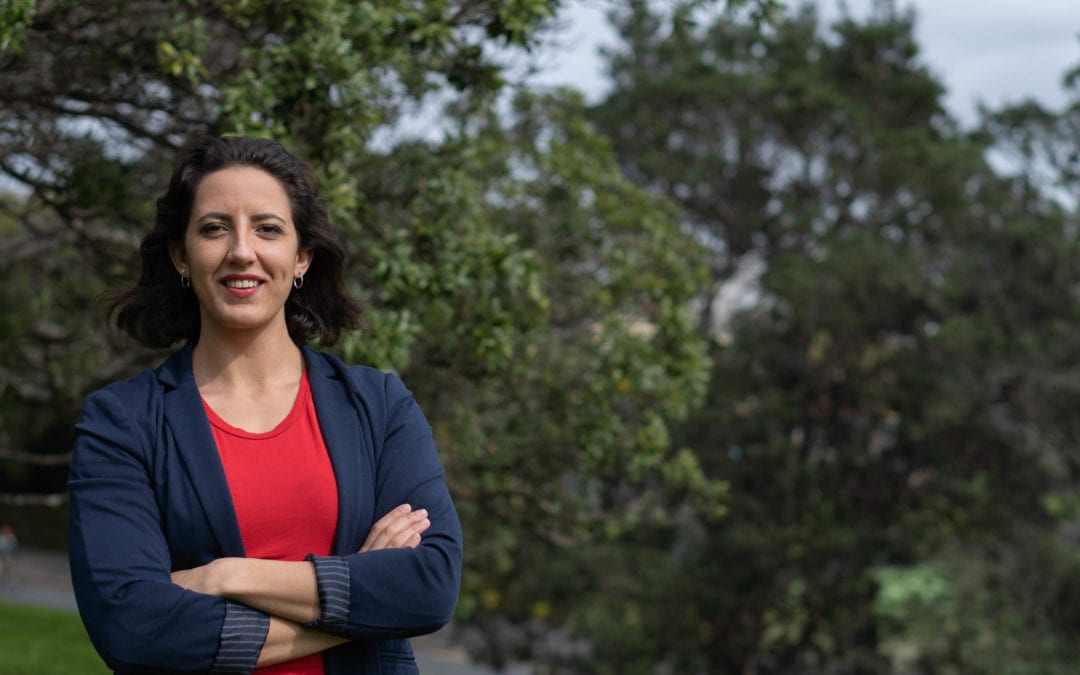
LevelTwo and Icehouse Ventures join forces
LevelTwo say they are New Zealand’s only commercial laboratory and workshop facility growing deep technology startups. Today we discuss LevelTwo past, present and future – and how we should be planning NZ’s future with Chief Executive, Imche Fourie.
Listen to the Podcast here:
Special thanks to organisations who support innovation and tech leadership in New Zealand by partnering with NZ Tech Podcast:
Umbrellar Connect
Sumo Logic
HP
Samsung
Vodafone NZ
Spark NZ
Vocus
Gorilla Technology

Auckland’s Bold Climate Plan: Can it halve Emissions in just 9 Years?
The Auckland Climate Action Plan sets out a bold agenda to halve greenhouse gas emissions by 2030. The changes required are profound. If you think fixing the harbour bridge is messy, wait till you try converting the majority of our cars to EVs and getting out of the gas heating business. Richard Hills is chair of the council’s Environment and Climate Change Committee. The youngest sitting councillor, Hills helped the plan get unanimous support and remains optimistic, if daunted, by the challenge and excitement of the changes ahead. He spoke to Vincent on the other side of the broken bridge.
Hear the Podcast Here:
Episode Links:
Read the plan here.
Read a good summary by Todd Niall here.

Sola Rosa – Chasing The Sun
With a new album, Chasing The Sun, ready for release, Sola Rosa’s Andrew Spraggon takes The 13th Floor’s Marty Duda through the new album, track by track.
Sola Rosa – Chasing The Sun https://music.solarosa.com/album/chasing-the-sun
Kiwi Music Podcast is presented by 13th Floor and Podcasts NZ.
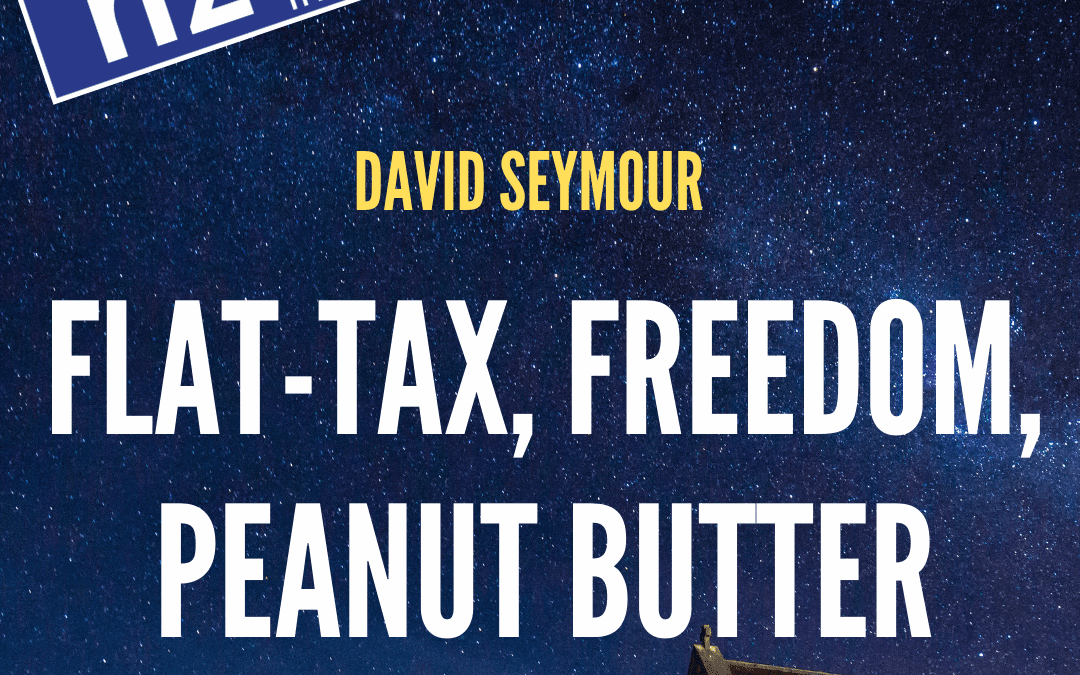
Flat-Tax, Freedom, Peanut Butter / David Seymour
Putting Government on a diet & the case for a simplified tax system.
In today’s show we are joined by David Seymour, leader of the ACT party to discuss their bold tax vision for the future, his love of peanuts, why the government needs a downsize, why free markets = more knowledge, Modern Monetary Theory, and how New Zealand can pull ourselves out of this mess.
Is tax love, or is it tall poppy syndrome? Should we keep printing cash until everybody’s rich and is this even possible, or are we setting our kids up for failure in the future?
By all measures, the ACT party is surging. If polling is anything to go by, its sole representative in parliament this past term, David Seymour, is set to be joined by a number of ACT colleagues this next term.
So what does the ACT party stand for and what can we expect from the most libertarian-leaning party heading into next month’s vote?
Less government, for one thing.
“Government is undoubtedly good for some things, but people should, by default, be voting for smaller government,” said Seymour. The belief here is that more money in the hands of everyday Kiwi’s will likely create better aggregated outcomes than a centralised ‘wealth redistributor’.
From an outsider’s perspective, it’s initially quite easy to agree with this. When I pay tax I don’t feel the “love” (as the Greens so kindly described it recently). In fact, I’m still waiting for a ‘thank-you’ card for all the working groups I’ve funded lately. It’s not so much the magnitude f tax paid, it’s how it’s being spent that some take issue with. Of course there is a role for government still – when it comes to health, infrastructure and education – some government of course is absolutely essential. When you’re literally the country at the end of the earth though, we need to be efficient – really efficient.
In the short run, perhaps increasing taxes on the most wealthy (subject to how that’s determined!), can potentially unlock some dollars and create some momentum in the economy – in the short run. This of course assumes an efficient and effective re-distribution of that wealth. But what happens after that wealth is redistributed if you’ve murdered the golden goose that produces it in the process. Well nothing I guess, it’s dead. That’s the end game of every other country that’s been tempted into following the ideals of socialism.
So it was disappointing, albeit expected, when Seymour reminded me that they’ll be pausing their 17.5% flat tax rate in light of our recent economic plights. The proposal, suggested before the pandemic, simplified tax across the board, so every dollar earned whether it’s your thousandth or your millionth, attracts the same tax rate. Simple. Efficient. Motivating. If you’re ambitious, knowing you can keep more of what you can earn , should be music to your ears. And hey, if it incentivises you to earn 3x more as a result, you could end up paying the same nominal amount of tax regardless, but with a larger smile on your dial.
Seymour argues that a flat-tax would cut down the bulk of the administration (increase efficiencies). More importantly, it could greatly reduce the likelihood that thousands of family trusts and limited liability companies will find new life as tax avoidance vehicles.
The flat-tax though, while potentially rational in regular economic conditions, simply couldn’t fly with the sheer volumes of debt we’ve recently taken on and will continue to take on. Having said that – if it’s really true that we cannot tax our way out of a recession, perhaps there’s still a case for it?
Until change happens, we still have more of the same type of tax-system in NZ – You could call a progressive tax system “tall poppy syndrome in the tax code,” but it undoubtedly has benefits for a country wrestling with a considerable recession.
_________________________________________________________________
The NZ Everyday Investor is brought to you in partnership with Hatch. Hatch, let’s you become a shareholder in the world’s biggest companies and funds. We’re talking about Apple and Zoom, Vanguard and Blackrock.
So, if you’re listening in right now and have thought about investing in the US share markets, well, Hatch has given us a special offer just for you… they’ll give you a $20 NZD top-up when you make an initial deposit into your Hatch account of $100NZD or more.
Just go to https://hatch.as/NZEverydayInvestor to grab your top up.
__________________________________________________________________
The NZ Everyday Investor would also like to acknowledge the support of kōura.
Most people fixate on just fees or historical returns when trying to choose a KiwiSaver fund. But professionals know there’s the third, arguably more essential component to consider – asset allocation. kōura’s digital advice tools will build you a KiwiSaver portfolio that has the perfect asset allocation just for you. Of course you could also just choose your own KiwiSaver portfolio with them too. Give them a try and see what your ideal KiwiSaver asset allocation looks like for you.
___________________________________________________________
Like what you’ve heard?
You can really help with the success of the NZ Everyday Investor by doing the following:
1- Tell your friends!
2- Write a review on Facebook, or your favourite podcast player
3- Help support the mission of our show on Patreon by contributing here
4- To catch the live episodes, please ensure you have subscribed to us on Youtube:
5- Sign up to our newsletter here
NZ Everyday Investor is on a mission to increase financial literacy and make investing more accessible for the everyday person!
Please ensure that you act independently from any of the content provided in these episodes – it should not be considered personalised financial advice for you. This means, you should either do your own research taking on board a broad range of opinions, or ideally, consult and engage an authorised financial adviser to provide guidance around your specific goals and objectives.

Kiwisaver Tech Investing, Tesla Battery Day, Hands on GoPro Hero 9 and Samsung Tab S7+
Kiwisaver Tech Investing with Movac and Kiwiwealth, Tesla Battery Day news incl sub NZ$50k autonomous electric car, Apple software/Watch/iPad refreshes, HP announces new laptops. Plus hands on with Samsung GoPro Hero 9 and Tab S7+.
Listen to the Podcast here:
Special thanks to organisations who support innovation and tech leadership in New Zealand by partnering with NZ Tech Podcast:
Umbrellar Connect
Sumo Logic
HP
Samsung
Vodafone NZ
Spark NZ
Vocus
Gorilla Technology

The Tale of a Food Truck Collective
Maggie Gray came to NZ on an OE, worked with Mastercard during the Rugby World Cup and then fell in love with the place. Somewhat unusually, she started a food truck just after she became a Mum.
She wanted flexibility on the job and the ability to work around her kids’ needs, something her corporate career was unable to give her. Maggie was on a run in her local park while training for the half marathon when she spotted a Mr. Whippy truck pull up and people start gravitating towards it. As a busy mum she was an avid smoothie drinker and seeing the truck made her realise how amazing it would be if there was a similar truck but one that sold smoothies instead of ice-cream.
This was in 2015 and despite what the movies showed, running a food truck selling quality food was extremely difficult and still a relatively new concept in Auckland. People associated food trucks with low quality hot chips and hot dog vendors. During winter there was a lack of events and so she partnered with a fellow food truck owner Timothy van der Werff of Double Dutch fries to organise their own street food event.
Amazingly, hundreds of people were lining out the door to support their favourite food trucks and that is how the idea for the Food Truck Collective was born. An organisation that is dedicated to showcasing the brilliant people behind the food trucks we all love to eat at.
Five years on, Maggie and Timothy use their knowledge of food trucks and what makes an outstanding event to organise events all over Auckland. Auckland Fried Chicken Festival, Auckland Vegan Food Festival and Food Truck Fridays at Britomart are just some of their popular events.
On our episode we talk about:
- Realities of running a food truck while also being a Mum
- Why appearances are key, both for the food you serve as well as your food truck
- What it takes to organise a successful street food event
- Working in partnership with food truck owners – why that’s key to a successful event
Listen to the Podcast Here:
Social Links:
The Food Truck Collective on Instagram @foodtruckcollectivenz
Learn more about Maggie’s journey and what she’s going to be up to next @foodtruckmamma.nz
Quotes from the episode:
“It’s worth spending some time making sure your food truck looks professional, crisp, clutter free and high quality. It makes a big difference to the first impression your customer gets.”
“We have our food trucks at heart always, for every event that we organize. If they do well, we do well. We want to make sure that we always maintain a transparent relationship with them.”
“It was about three years ago when we launched the Fried Chicken Festival and it just went viral, viral overnight. In the end, we had 30,000 people interested in the Fried Chicken Festival. It’s crazy what people will do for fried chicken.”
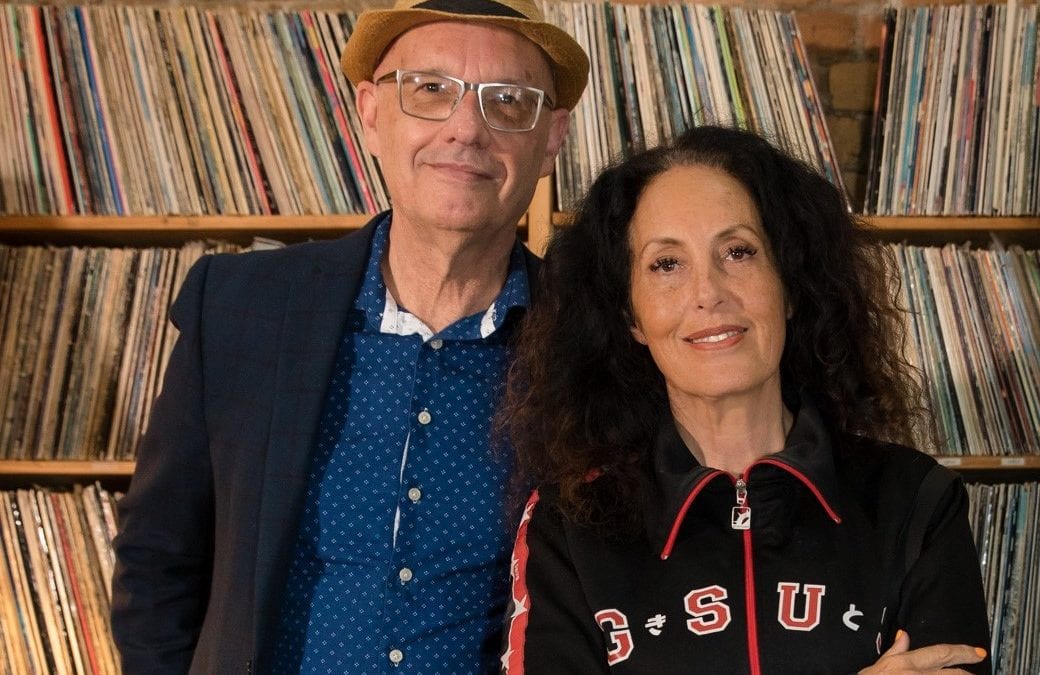
Moana Maniapoto Talks About Tōku Reo
‘Tōku Reo’ is the second single to be released from the forthcoming album from Moana & the Tribe, Ono. Here she is talking to The 13th Floor’s Marty Duda about what has gone into creating this unique series of recordings.
Along with her music, Moana is now hosting a current affairs show on Maori TV, and we get some insight into how that all is going.
Follow Moana and The Tribe: Web, Facebook, YouTube, Spotify
Kiwi Music Podcast is presented by 13th Floor and Podcasts NZ.
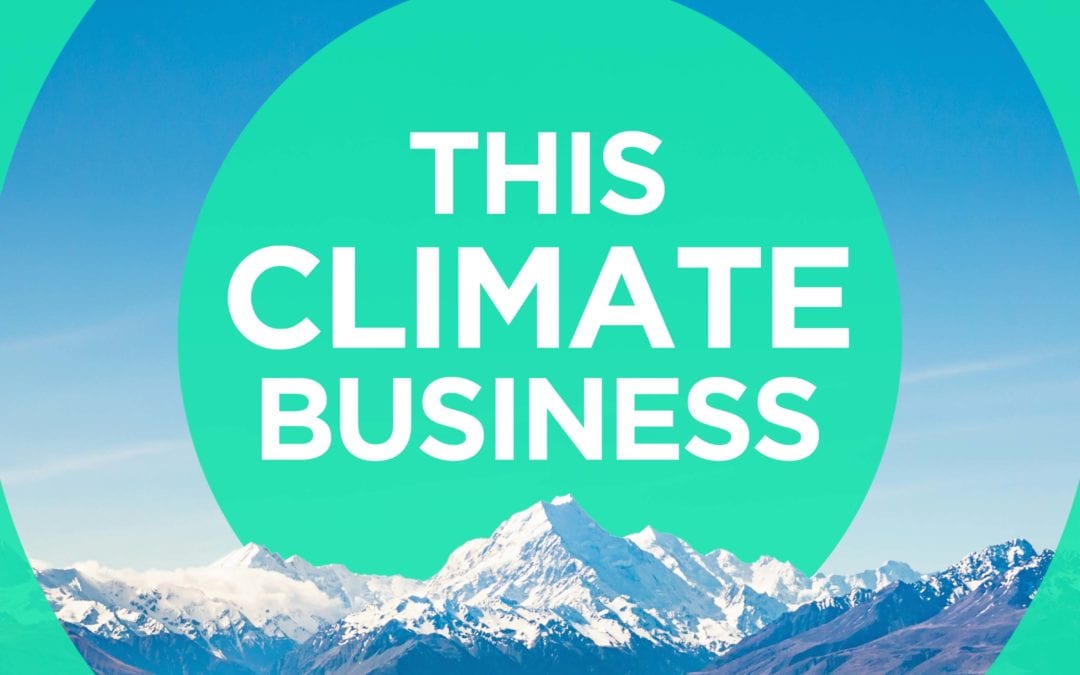
Lakes, Tomatoes and Seaweed: What are the 70 Best Kiwi Climate Tech Ideas?
Jez Weston and Rohan MacMahon are technologists scouring New Zealand to find the best and brightest projects to address climate change. Or more specifically, to find technologies that offer the greatest emissions reductions, for the lowest cost, in the least amount of time. They have identified 70 projects that fit the bill – from renewable energy and carbon capture to electric bikes and algae. Vincent asked them what’s the best, the worst, and what they’re still looking for.
Hear the Podcast Here:
About Jez Weston
Jez has 15 years’ experience in policy and climate advice including translating climate science into mitigation and adaptation policy advice. He has more recently been involved in research investment and commercialisation. His background is in physical science, engineering, and economics. He has a PhD from Cambridge University.
About Rohan McMahon
Rohan has 25 years’ experience as a management consultant, strategic planner and corporate executive first with Accenture (then Andersen Consulting), then an Internet start-up, followed by executive roles at Telstra Australia. In 2010 he took on the role of strategy director at Crown Fibre Holdings Ltd and was appointed to the NZ Government’s Digital Economy and Digital Inclusion Ministerial Advisory Group.

Wealth Tax – The Green Party Explains / James Shaw
Tax series: Greens’ Shaw on the Wealth Tax
What is the Greens wealth tax that we’ve heard so much about? How much of it will we actually come into fruition if they come into power this election? How is it going to impact the growing number of New Zealanders relying on investments for their income? Today we’re joined by James Shaw, Green Party co-leader, to understand the thinking behind the party’s aggressive new tax plan.
This is the first in a brief series of podcasts where we explore how each party views wealth, and how they intend on making it easier, or harder, for the everyday Kiwi to grow it.
_________________________________________________
For too long I think, the mainstream of New Zealand has been fixated on income exclusively, and not nearly enough on capital gains when it comes to making investment decisions, and tax policy too.
We’re taught from a young age to get educated, get a good job, pay your taxes, repay debt, and then invest, ideally in things that produce positive cashflow; usually in that order.
This default ‘value-investing’ paradigm places a relatively low reliance on expected gains we should be making on our investments. Is this really the way it’s going to work from here on in, when incomes are now increasingly likely to be at risk of being disrupted in a post-Covid world?
Our tax system, in NZ anyway, also supports this baseline assumption that you’re rich if you earn ‘high income’ (a relative statement!). But would you really call a sole earner of a five person family who makes $200,000 a year “rich”? What about a bachelor making $80,000 a year, but with more than a million worth of inherited assets?
You may think we pay a reasonable amount of tax already in NZ, although I suppose the less you earn, the higher you think the tax rate should be, and vice versa. So while your income is taxed on the way into investments, in many (but not all) cases, the growth in your investments is largely un-taxed.
This favours those who are ‘already there’, and makes it harder for those trying to get there. The fruit the tree produces gets the attention, but the tree itself is left alone.
In the new world we’re living in, complete with money printing from our central banks, it’s clear we’re heading into a space where gains on investments (capital gains) perhaps can be considered more reliable than our incomes. Understandably then, the government will try to position itself to benefit from this trend – perpetual money creation to solve the immediate problem will only get us so far.
Shaw was coy on whether he thinks any of their bold tax proposal will actually come to fruition, but he did take some time to explain exactly how they arrived at their proposal today. I for one don’t love the idea of the government hacking away at my trunk, when they’re already getting a good slice of the fruits from my tree. On the other hand, I recognise the need for society to solve the issue of our widening wealth gap. What do you think about the Greens’ ideas? Leave a comment on our social media, or drop us a line at darcy.ungaro@nzeverydayinvestor.com to share your thoughts.
________________________________________________________________
The NZ Everyday Investor is brought to you in partnership with Hatch. Hatch, let’s you become a shareholder in the world’s biggest companies and funds. We’re talking about Apple and Zoom, Vanguard and Blackrock.
So, if you’re listening in right now and have thought about investing in the US share markets, well, Hatch has given us a special offer just for you… they’ll give you a $20 NZD top-up when you make an initial deposit into your Hatch account of $100NZD or more.
Just go to https://hatch.as/NZEverydayInvestor to grab your top up.
________________________________________________________
Like what you’ve heard?
You can really help with the success of the NZ Everyday Investor by doing the following:
1- Tell your friends!
2- Write a review on Facebook, or your favourite podcast player
3- Help support the mission of our show on Patreon by contributing here
4- To catch the live episodes, please ensure you have subscribed to us on Youtube:
5- Sign up to our newsletter here
NZ Everyday Investor is on a mission to increase financial literacy and make investing more accessible for the everyday person!
Please ensure that you act independently from any of the content provided in these episodes – it should not be considered personalised financial advice for you. This means, you should either do your own research taking on board a broad range of opinions, or ideally, consult and engage an authorised financial adviser to provide guidance around your specific goals and objectives.
______________________________

NZ Cyber Security update, Android 11 arrives, TikTok/Oracle Deal, Nvidia purchase of ARM
This week KPMG Cyber Security boss Philip Whitmore joins Paul Spain on NZ Tech Podcast to discuss the state of the play from a security perspective and reveals some interesting details about the scale of invoicing scams locally. Also on the agenda – the arrival of Android 11, TikTok/Oracle Deal, Nvidia purchase of ARM, COVID tracing and more.
Listen to the Podcast here:
Special thanks to organisations who support innovation and tech leadership in New Zealand by partnering with NZ Tech Podcast:
Umbrellar Connect
Sumo Logic
HP
Samsung
Vodafone NZ
Spark NZ
Vocus
Gorilla Technology



